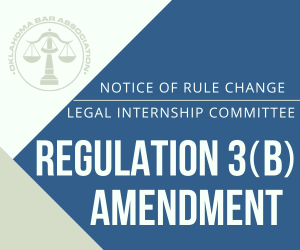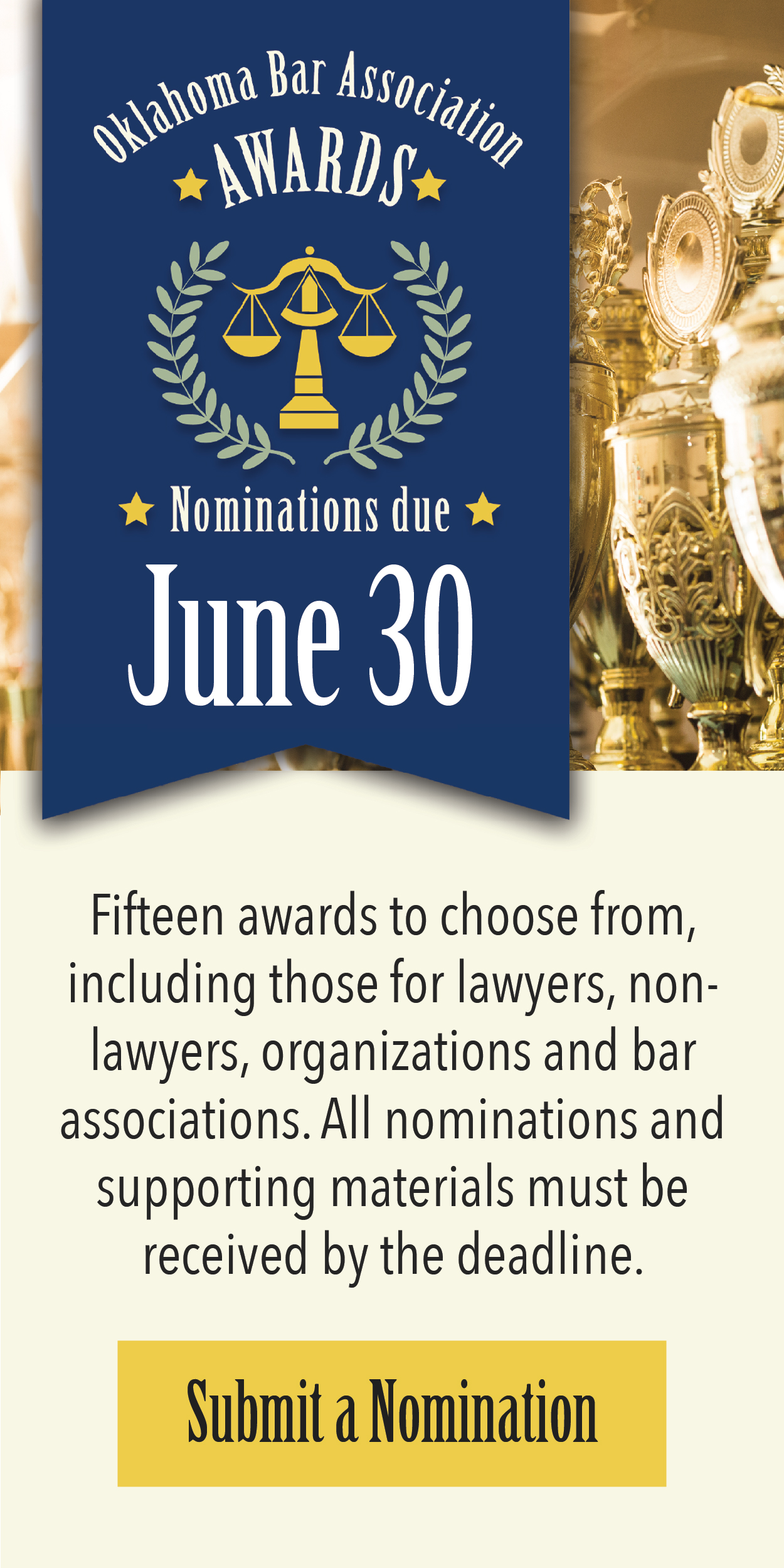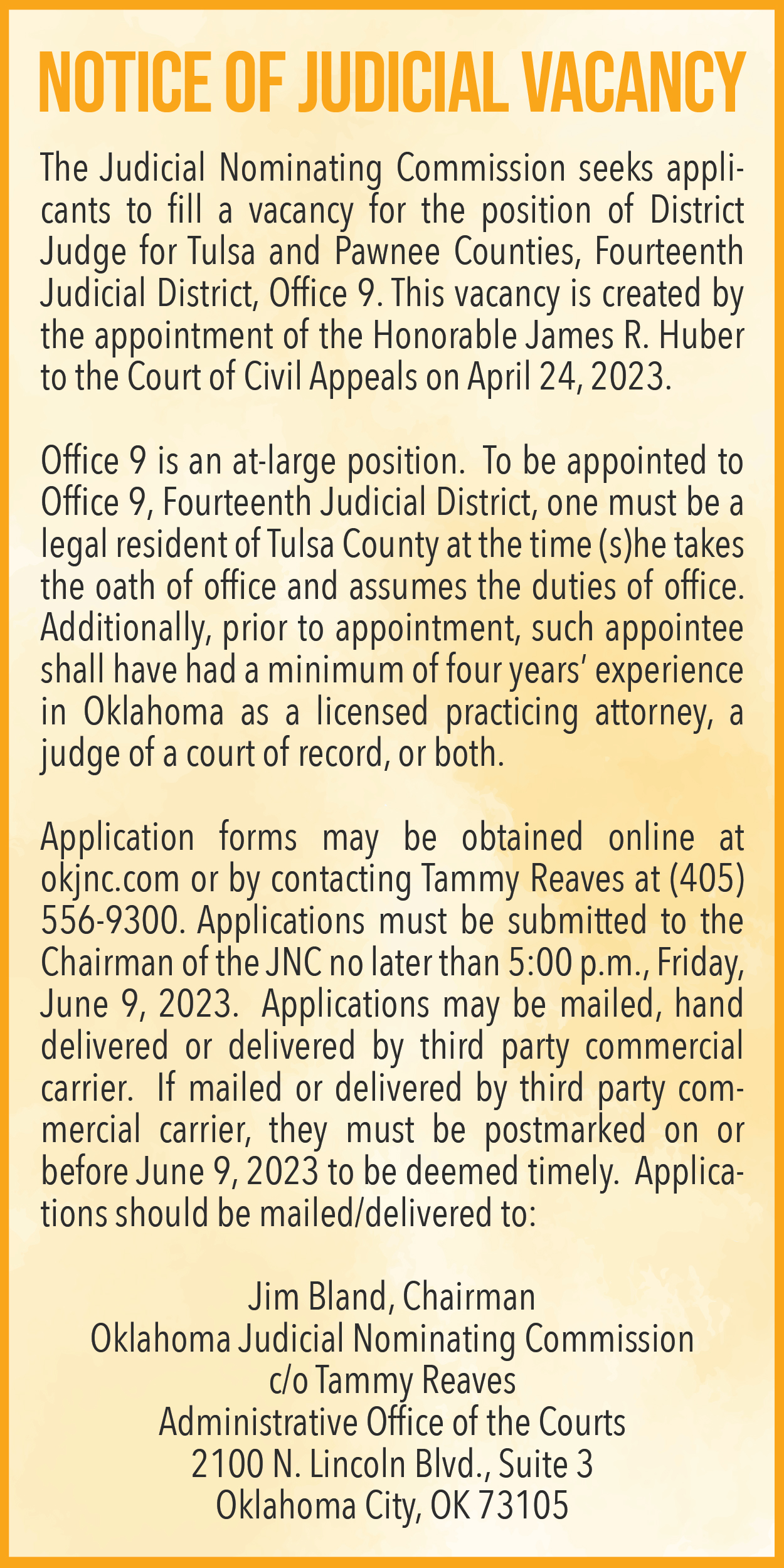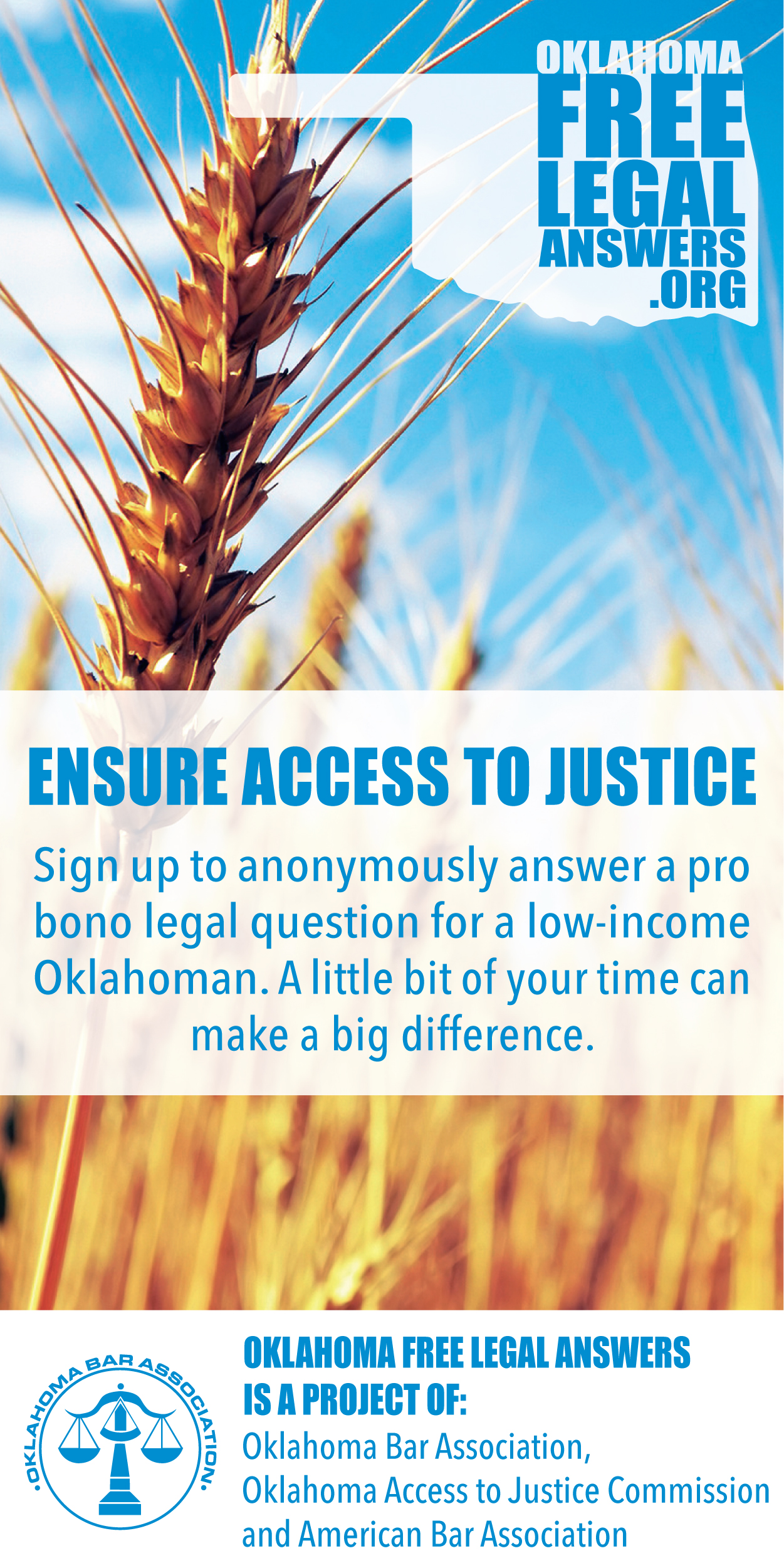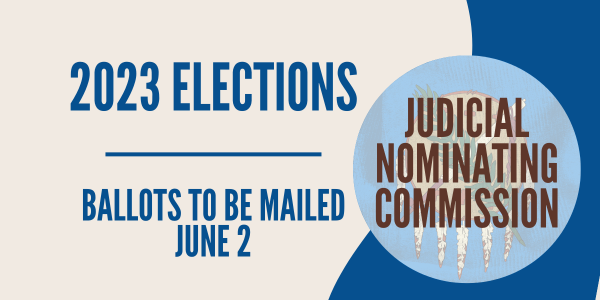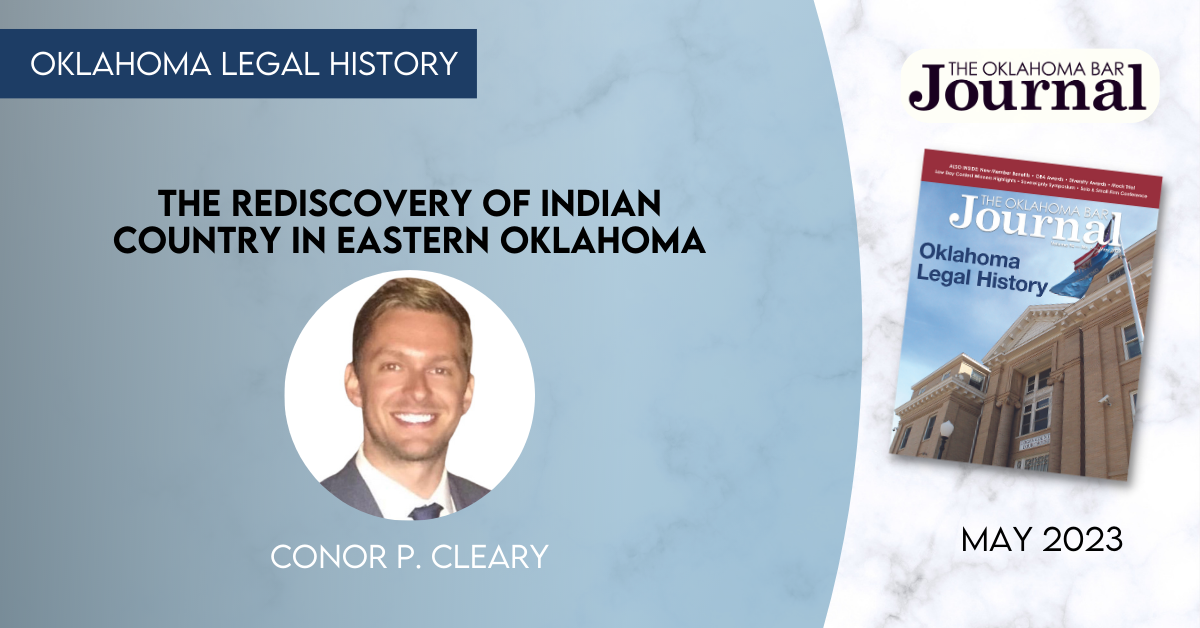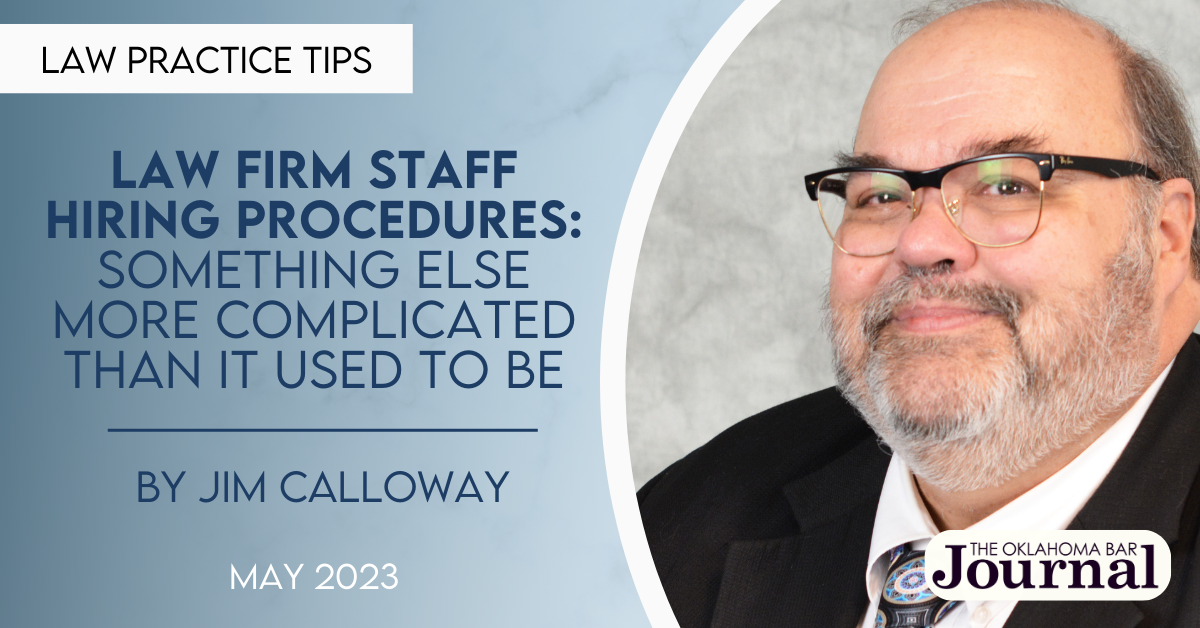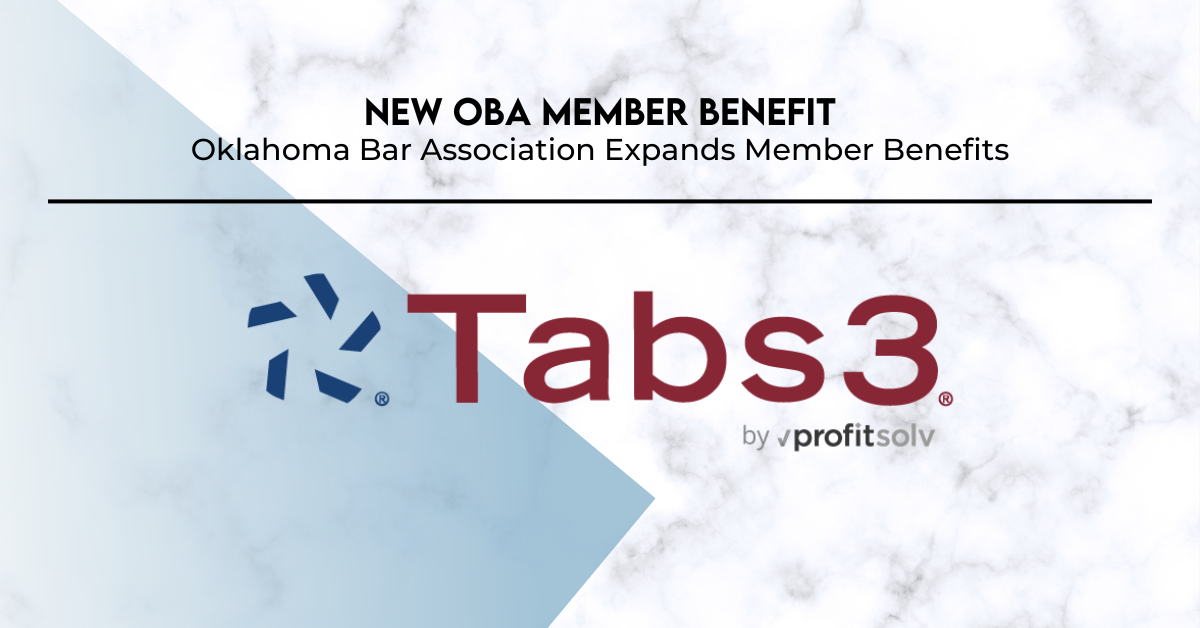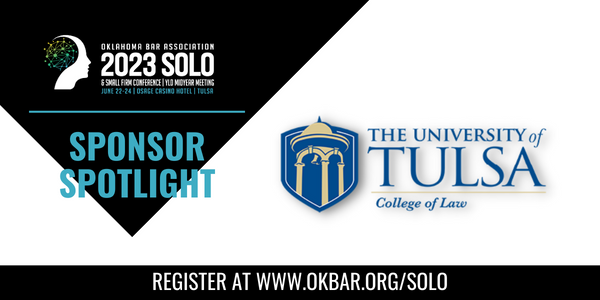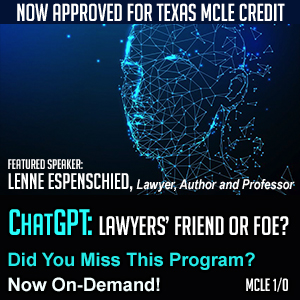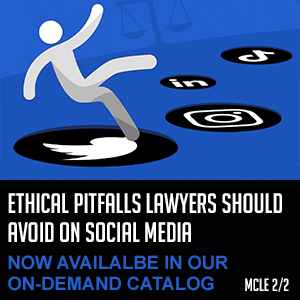Courts
- 2023 OK 55: IN RE AMENDMENT TO 12 O.S. CH. 15 APP. 1 RULES OF OKLAHOMA SUPREME COURT (As Clarified: May 22, 2023)
- 2023 OK 57: PIKE OFF OTA v. OKLAHOMA TURNPIKE AUTHORITY
- 2023 OK 58: STATE ex rel. OKLAHOMA BAR ASSOCIATION v. ODOM
No published opinions this week.
- 2023 OK CIV APP 14: MOORE v. BOB HOWARD GERMAN IMPORTS
- 2023 OK CIV APP 19: BRISCO v. GERARD
- 2023 OK CIV APP 20: DORITY v. YODER
Dispositions Other than by Published Opinions
The Supreme Court of Oklahoma Court Calendar
The Supreme Court of Oklahoma is in session year round, unless otherwise noted. The Court regularly schedules conferences on Mondays and other days as needed.
Member Transitions
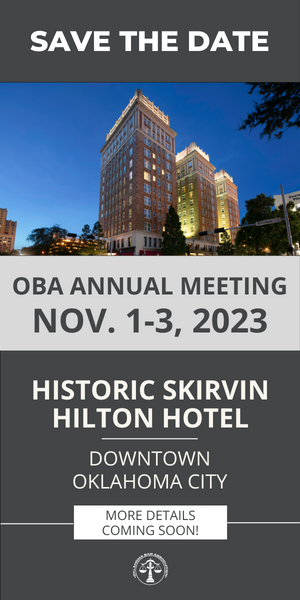
More
Join the OBA in Observing Memorial Day

The Oklahoma Bar Center will be closed at 2 p.m. Friday, May 26, through Monday, May 29, in recognition of the Memorial Day holiday. Offices will reopen at 8:30 a.m. on Tuesday, May 30, resuming regular business hours.
The Nominating Petition deadline for Judicial Nominating Commission candidates was 5 p.m. Friday, May 19. Ballots will be mailed June 2, 2023, to active attorneys in good standing in Congressional District 1.* Ballots must be received at the Oklahoma Bar Center by 5 p.m. June 16, 2023. The nominee for District 2 is an uncontested candidate, therefore, no ballots will be mailed. Ballots must be received at the Oklahoma Bar Center by 5 p.m. June 16, 2023. Ballots will be tabulated on June 19, 2023, and election results will be posted June 21, 2023.
It is important to the administration of justice that the OBA members become informed on the candidates and cast their votes.
ABOUT THE COMMISSION
The Judicial Nominating Commission (JNC) consists of 15 unpaid volunteer members. Of the 15 members, only six members are lawyers. Lawyer commissioners are elected by their fellow Oklahoma Bar Association members, each representing one of six congressional districts across the state, as they were in 1967 when the commission was established.* They each serve a 6-year term. Elections are held each odd-numbered year for members from two districts.
"The existence of 'Indian country' – generally defined as all land within Indian reservations, dependent Indian communities and Indian allotments – has legal significance because it is 'the benchmark for approaching the allocation of federal, tribal and state authority with respect to Indians and Indian lands.' Generally, the federal and tribal governments have primary authority over Indians within Indian country, while state jurisdiction is more limited. Outside of Indian country, on the other hand, states generally have jurisdiction over Indians and non-Indians alike.
One might reasonably assume that the state of Oklahoma, home to 39 different Indian tribes, would have significant amounts of Indian country within its borders, particularly in the eastern part of the state, which, immediately prior to statehood, was the Indian Territory. Yet, as recently as 1979, the Oklahoma attorney general categorically concluded that 'in Eastern Oklahoma, there is no "Indian Country" as that term is used in federal law.'"
"Suppose next week begins with one of your top paralegals or legal secretaries giving you two weeks’ notice. Maybe they are moving to another location or another local law firm. But now you have an opening to fill.
The first response is not about filling the position. First, you must determine if there are any matters the employee is working on that they no longer should. You must also determine whether some network access rights should be changed.
FIRST THINGS FIRST
If you have been informed the employee is going to work for another law firm, then it is prudent to check and see what matters you have in which that firm is opposing counsel. Hopefully there are not any – or there are only a few old, closed cases. If a departing employee is going to a firm with which you have several contested matters currently underway, it is prudent to have your IT professional restrict that employee’s access to those files and to reassign someone else to do that work, even if it is the lawyer."
The Diversity Committee is now accepting nominations for the annual Ada Lois Sipuel Fisher Diversity Awards to be presented in November at the Annual Meeting. The three award categories are members of the judiciary, licensed attorneys and organizations that have championed the cause of diversity. All nominations must be received by Tuesday, Aug. 1.
Tabs3 offers intuitive, fully integrated legal billing and practice management solutions that combine security and advanced performance with fast, flexible, work-anywhere functionality. The Tabs3 Connect mobile platform allows enhanced connectivity. Tabs3 offers U.S.-based support for all clients, and a personal demo is available. OBA members save 10% on Tabs3 Software.
Tabs3 is also a Bronze Sponsor for the OBA Solo & Small Firm Conference. Don't forget to register now, and stop by their booth at the conference to learn more!
The OBA Solo & Small Firm Conference welcomes the TU College of Law as a Bronze Sponsor for this year's conference. The TU College of Law, which has been educating law students for a century, was founded by a group of lawyers as the Tulsa Law School in 1923 and joined with the University of Tulsa in 1943. The college offers its J.D. program with concentrations in sustainable energy and natural resources law, Native American law and health law. In addition to the J.D. program, the TU College of Law also offers Master's degrees and law-related certificates. Stop by their booth at the Solo Conference!
Featured CLE
By Jim Calloway, OBA Management Assistance Program Director
Prepaid legal fees and refundability of those fees were the subject of American Bar Association Formal Opinion 505. The recently released opinion states that under the Model Rules of Professional Conduct, a fee paid to a lawyer in advance for services to be rendered in the future must be placed in a client trust account and may be withdrawn only as earned by the performance of the contemplated services. This includes flat and fixed fees.

This opinion should not surprise Oklahoma lawyers as it tracks the opinion of the Oklahoma Supreme Court released in Oklahoma Bar Association v. Weigel, 2014 OK 4 (2014), which provided clear guidance to Oklahoma lawyers. While sometimes bar ethics advisory opinions use conditional or cautious language, the tone of this opinion was quite blunt.
“The Model Rules of Professional Conduct do not allow a lawyer to sidestep the ethical obligation to safeguard client funds with an act of legerdemain: characterizing an advance as ‘nonrefundable’ and/or ‘earned upon receipt.’ This approach does not withstand even superficial scrutiny. A lawyer may not charge an unreasonable fee. (Citations omitted.) Therefore, under the Model Rules, an advance fee paid by a client to a lawyer for legal services to be provided in the future cannot be nonrefundable. Any unearned portion must be returned to the client. Labeling a fee paid in advance for work to be done in the future as ‘earned upon receipt’ or ‘nonrefundable’ does not make it so.”
The opinion indicated that even the term “retainer” might be confusing to consumers, and advance or deposit might be preferable.
As always, the OBA Ethics Counsel and the OBA MAP staff are available to assist with any questions about compliance or trust accounting management tools.
The Oklahoma Bar Journal is a publication of the Oklahoma Bar Association. All rights reserved. Copyright© 2023 Oklahoma Bar Association. Statements or opinions expressed herein are those of the authors and do not necessarily reflect those of the Oklahoma Bar Association, its officers, Board of Governors, Board of Editors or staff. Although advertising copy is reviewed, no endorsement of any product or service offered by any advertisement is intended or implied by publication. Advertisers are solely responsible for the content of their ads, and the OBA reserves the right to edit or reject any advertising copy for any reason. Legal articles carried in The Oklahoma Bar Journal are selected by the Board of Editors. Information about submissions can be found at www.okbar.org.


